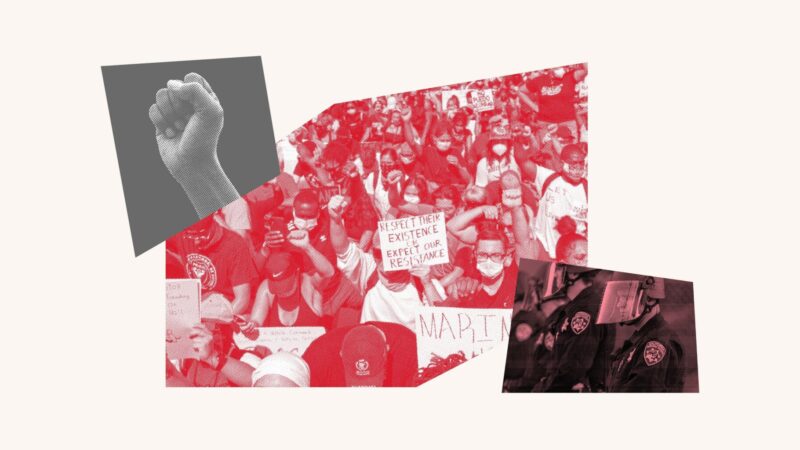Racial Justice
The ACLU aims to preserve and extend constitutionally guaranteed rights to people who have historically been denied their rights on the basis of race.

The ACLU of Massachusetts (ACLUM) launched the Racial Justice Program (RJP) in 2015, seeking to preserve and extend the constitutionally guaranteed rights of people of color in Massachusetts. The ACLUM has long pursued racial justice in the Commonwealth, but the formalization of this program allowed us to bring a renewed focus to bear on this demanding work.
At its inception, the RJP was committed to statewide criminal legal reform, with a special emphasis on the roles of prosecutors and police. Notably, the RJP worked across the Commonwealth to create new standards for policing and accountability, especially on college campuses.
More recently, the RJP’s focus has been to lift the narratives of people of color and address injustices through access to democracy, voter engagement, freedom of speech, reproductive rights, and LGBTQ+ and gender equity. To this end, the RJP frequently partners with local organizations to understand the issues important to individual communities via listening sessions and community forums. The program also provides support by way of “Know Your Rights” trainings and legislative advocacy.
Beyond this, the RJP regularly advances a series of ongoing campaigns. Since 2023, the RJP has been championing policies that promote diversity in higher education while actively opposing censorship efforts, including book bans. Also in 2023, the RJP launched BIPOC to the Ballot Box (B2BB), a public education program designed to build voter awareness and engagement in municipalities with significant BIPOC communities. The program runs annually, alternating its focus between municipal and federal elections.
In 2025, the RJP hosted its first annual MLK Jr. Day event, “Where Do We Go from Here: Choosing Community Over Chaos.” Intended to kick off the holiday weekend, the event provides a platform to celebrate powerful people of color, while simultaneously reflecting upon how we must carry their legacy forward.
Though generations of activism have led to important gains, our country — and our Commonwealth — has yet to break free from systems of racial injustice. As this fight continues, the RJP is committed to highlighting the harmful legacies of this injustice and fighting for a more just and inclusive future through advocacy, education, and community-driven action.
The Latest

Legal Groups Representing Plaintiffs File Supreme Court Brief Supporting Core Constitutional Protection of Birthright Citizenship

Department of Education Backs Down on Unlawful Directive Targeting Educational Equity

Federal Appeals Court Hears Case Challenging NIH Grant Terminations
Cases, Campaigns & Legislation
APHA v. NIH
Graham et al. v. District Attorney for Hampden County
Take Action
Today, years of hard-fought civil liberty protections are under threat.
To influence lawmakers, we need everyone to get involved. Here is 1 action you can take today.
Stay Informed
Sign up to be the first to hear about how to take action.
By completing this form, I agree to receive occasional emails per the terms of the ACLU’s privacy statement.
By completing this form, I agree to receive occasional emails per the terms of the ACLU’s privacy statement.

